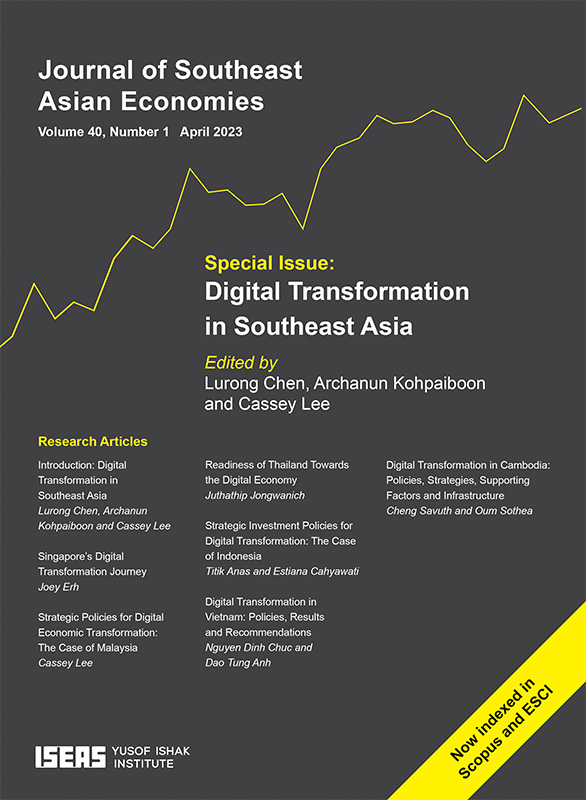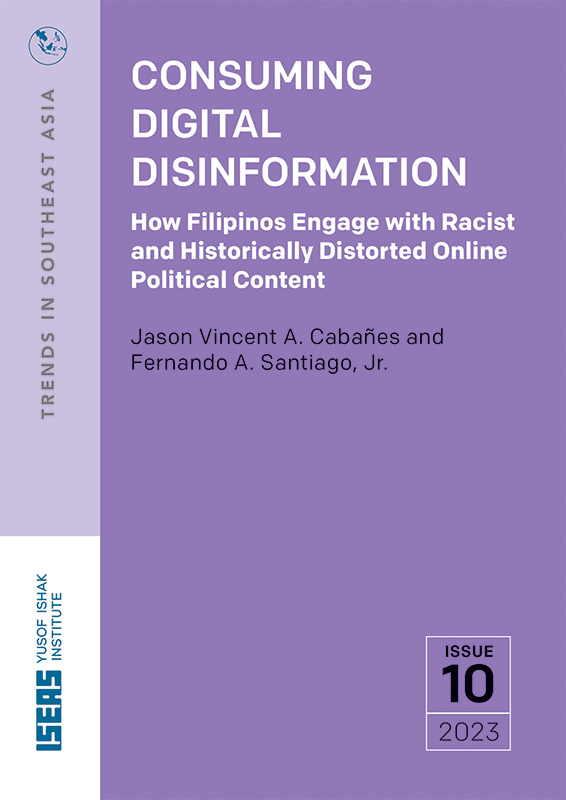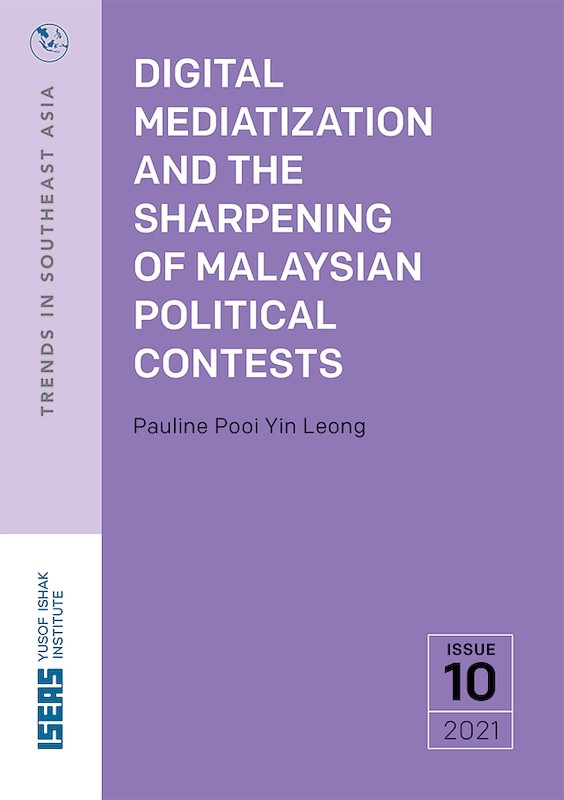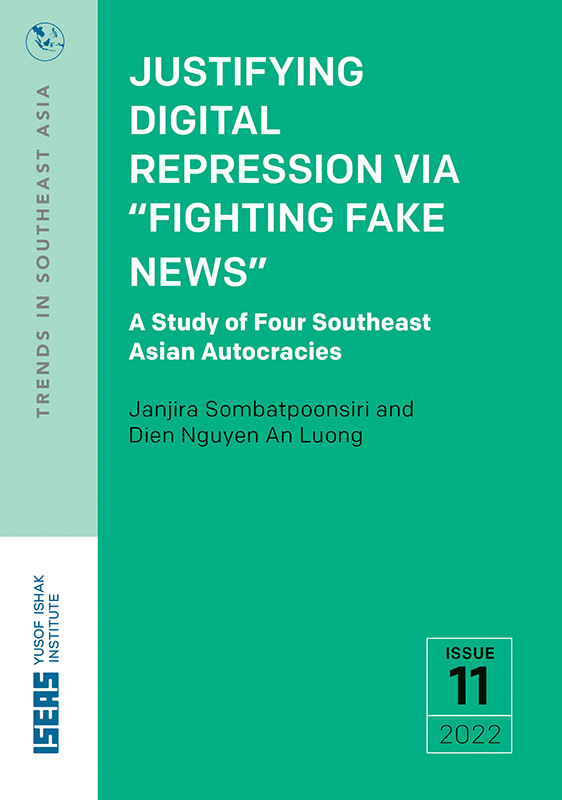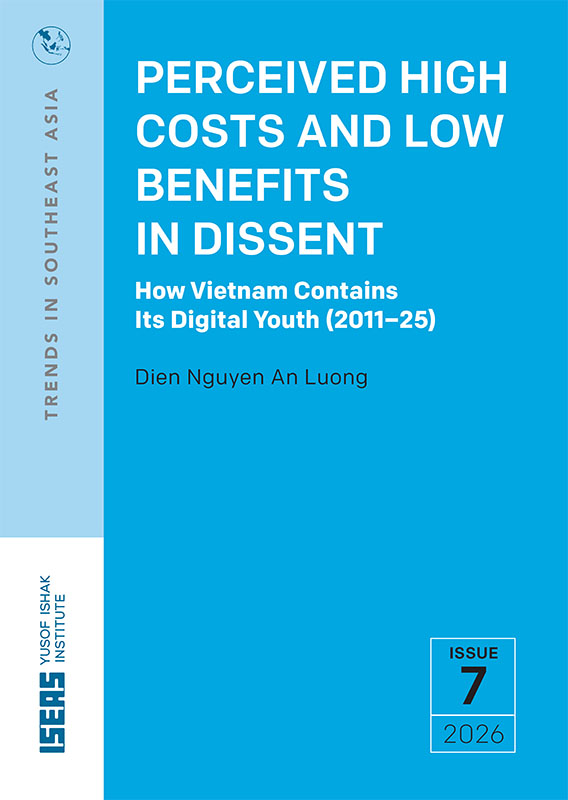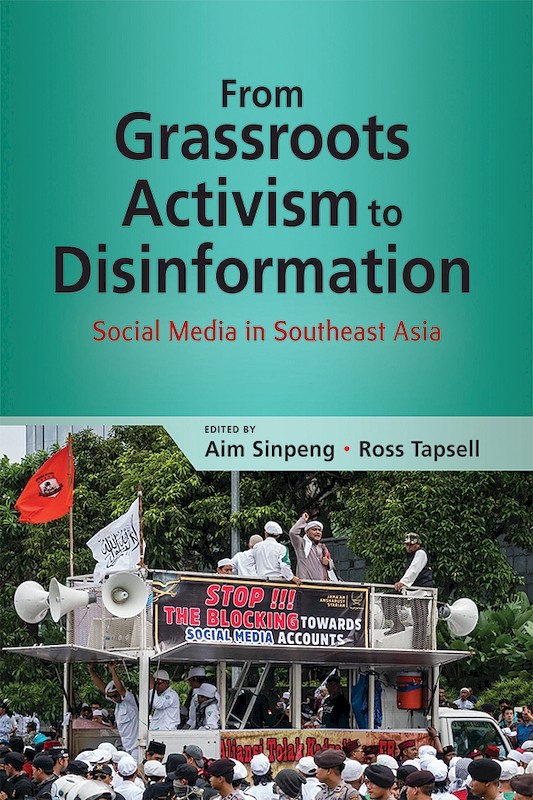Digital Indonesia: Connectivity and Divergence
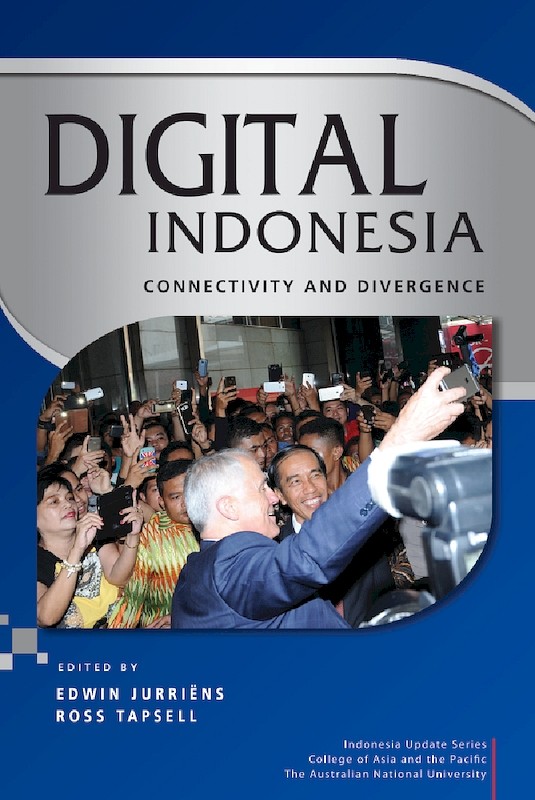
Date of publication:
2017
Publisher:
ISEAS – Yusof Ishak Institute
Number of pages:
304
Code:
BM549
Hard Cover
ISBN: 9789814762991
Reviews
Deasy Simandjuntak, Archipel 99, 2020.
"The fifteen chapters of the volume portray the opportunities and challenges in different aspects of Indonesia's digital era. In chapter 1, the editors Edwin Jurriens and Ross Tapsell define the "digital" by "the translation of various aspects of life into digits for information and communication purposes" (p.3) and argue that a discussion on "digital Indonesia" should begin by "putting the very idea of technological 'revolution' into critical perspective by positioning the realities of the digital world in a context of colliding socio-political, cultural and natural environments" (p.3). The book is divided into five sections: connectivity, divergence, identity, knowledge and commerce.
This book ... covers various issues on how Indonesia deals with governance, economy and social life in the digital era. …. [t]his book represents a pioneering work on Indonesia's response to the digital era. It portrays various opportunities and challenges and shows how the state and the society alike navigate through policies and implementation. I thus recommend this book to policymakers, business practitioners, students and all who study Indonesia and are interested in how disruptive technology influences its politics and economy."
Andrew Sheng, Asian Pacific Economic Literature, 2018.
It takes a lot of patience and time therefore to read a 15-chapter book packed with valuable insights on Digital Indonesia, which is hugely rewarding given its depth, breadth, and scope of analysis on how the fourth largest country in the world is facing up to the Digital Era.
Although this book is a collection of papers presented to the Australian National University (ANU) Indonesia Update Conference in September 2016, the publishers and editors are to be congratulated in bringing out this book so quickly and timely. Digital progress is advancing at nano-speed and any book on the subject that is more than two years old will be obsolete by the time it reaches its readers.
This book, by delving deep into the whole range from digital policy formulation and execution, social connectivity, divergence, identity and commerce, brings out the whole range of complexity and diversity of social and cultural evolution through the digital media that has lessons for everyone else. The essays are written both by insiders (two Presidential advisers, one tech start-up operator and a former Minister), as well as academics, civil society, and knowledge of workers who bring sharp insights and human stories about how digital tools bring both light and dark to a changing society.
Taking a broad and deep overview of the ongoing digital revolution in Indonesia, this book provides illuminating chronicles of the ongoing saga of national and cultural transformation through the digital media. This is a book of great hope and serious warnings; this transformation is not without its dark sides, which need to be managed in order to attain social harmony that is the foundation of development. As we have seen since the Arab Spring, Brexit, and Trump, social media has transformed politics, making it more edgy as views become more polarized and raising not just digital divides but physical walls between people and communities.
I commend the book to all those interested in Indonesia and to those who are exploring how digitization can aid or retard economic as well as social and cultural development.
About the publication
This book places Indonesia at the forefront of the global debate about the impact of "disruptive" digital technologies. Digital technology is fast becoming the core of life, work, culture and identity. Yet, while the number of Indonesians using the internet has followed the upward global trend, some groups — the poor, the elderly, women, the less well-educated, people living in remote communities — are disadvantaged. This interdisciplinary collection of essays by leading researchers and scholars, as well as e-governance and e-commerce insiders, examines the impact of digitalisation on the media industry, governance, commerce, informal sector employment, education, cybercrime, terrorism, religion, artistic and cultural expression, and much more. It presents groundbreaking analysis of the impact of digitalisation in one of the worlds most diverse, geographically vast nations. In weighing arguments about the opportunities and challenges presented by digitalisation, it puts the very idea of a technological revolution into critical perspective.
Contents
-
Digital Indonesia: Connectivity and Divergence
[Whole Publication, ISBN: 9789814786003], by Edwin Jurriëns, Ross Tapsell, editors -
Preliminary pages
-
1. Challenges and opportunities of the digital "revolution" in Indonesia , by Edwin Jurriëns, Ross Tapsell, authors
- PART 1: CONNECTIVITY
-
2. An insider's view of e-governance under Jokowi: political promise or technocratic vision? , by Heru Nugroho, Agung HIkmat, authors
-
3. Mobile phones: advertising, consumerism and class , by Emma Baulch, author
-
4. The political economy of digital media , by Ross Tapsell, author
- PART 2: DIVERGENCE
-
5. Narrowing the digital divide , by Onno W. Purbo, author
-
6. Laws, crackdowns and control mechanisms: digital platforms and the state , by Usman Hamid, author
-
7. The state of cybersecurity in Indonesia , by Budi Rahardjo, author
- PART 3: IDENTITY
-
8. Digital activism in contemporary Indonesia: victims, volunteers and voices , by John Postill, Kurniawan Saputro, authors
-
9. Social media and Islamic practice: Indonesian ways of being digitally pious , by Martin Slama, author
-
10. Online extremism: the advent of encrypted private chat groups , by Nava Nuraniyah, author
- PART 4: KNOWLEDGE
-
11. Digitalising knowledge: education, libraries, archives , by Kathleen Azali, author
-
12. Digital art: hacktivism and social engagement , by Edwin Jurriëns, author
- PART 5: COMMERCE
-
13. Indonesia and the digital economy: creative destruction, opportunities and challenges , by Mari Pangestu, Grace Wong, authors
-
14. A recent history of the Indonesian e-commerce industry: an insider's account , by Bede Moore, author
-
15. The Go-Jek effect , by Michele Ford, Vivian Honan, authors
-
Index
-
Indonesia Update Series
Indonesia Update Series
-
2016Land and Development in Indonesia: Searching for the People's Sovereignty
-
2015The Yudhoyono Presidency: Indonesia's Decade of Stability and Stagnation
-
2014Regional Dynamics in a Decentralized IndonesiaHal Hill, editor
-
2013Education in Indonesia
-
2012Indonesia Rising: The Repositioning of Asia's Third GiantAnthony Reid, editor
-
2011Employment, Living Standards and Poverty in Contemporary Indonesia
-
2010Problems of Democratisation in Indonesia: Elections, Institutions and Society
-
2009Indonesia beyond the Water's Edge: Managing an Archipelagic State
-
2008Expressing Islam: Religious Life and Politics in Indonesia
-
2007Indonesia: Democracy and the Promise of Good Governance
-
2006Different Societies, Shared Futures: Australia, Indonesia and the RegionJohn Monfries, editor
-
2005The Politics and Economics of Indonesia's Natural ResourcesBudy Resosudarmo, editor
-
2004Business in Indonesia: New Challenges, Old Problems
-
2003Local Power and Politics in Indonesia: Decentralisation & Democratisation
-
2002Women in Indonesia: Gender, Equity and Development
-
2001Indonesia Today: Challenges of History
-
2000Indonesia in Transition: Social Aspects of Reformasi and Crisis
-
1999Post-Soeharto Indonesia: Renewal or Chaos?Geoff Forrester, editor
-
1997Indonesia Assessment: Population and Human Resources
-
1994Indonesia Assessment 1994: Finance as a Key Sector in Indonesia's DevelopmentRoss H McLeod, editor

